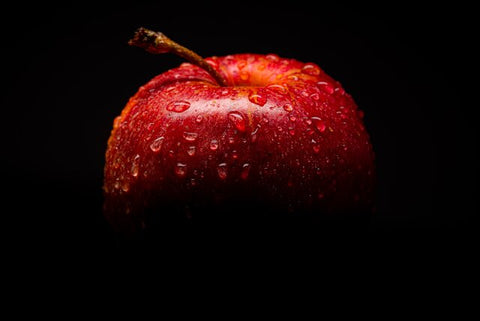
If your body is a fortress, then your immune system can be equated to the soldiers that protect it from being invaded by outside enemies, which in this case are pathogens and germs. Yes, your immune system needs to be strong enough to protect your body from all kinds of infectious microbes that cause diseases and infections. The best way to strengthen your immune system is by including immunity boosters in your diet.
So what are these immunity boosters, you ask? Well they are foods that help bolster your immunity by including a healthy mix of essential micronutrients such as vitamin A, C,D,E, B complex and minerals like zinc, selenium, iron, calcium, magnesium, manganese, and folic acid, to name a few. One of the excellent sources of these nutrients is fruits, particularly the citrus ones. Yes, often overlooked, fruits are an excellent source of nutrients that help to bolster your immune system and keep it strong all year long. So what are the most common immunity-boosting fruits? Let’s find out.
Immunity-Boosting Fruits
Some of the most common fruits that serve as immunity boosters are orange, grapefruit, blueberries, apples, and pears. Let’s look at each of them in detail.Oranges

Moreover, oranges or orange juice contain important antioxidants, flavonoids, and carotenoids that inhibit free radical activity and reduce inflammation in the body, both of which are the primary causes of chronic illnesses in the body. The vitamin C content in this fruit also helps to improve cell communication, which further assists in strengthening the immune response when the body comes into contact with an infectious pathogen.
Blueberries

Grapefruit

Moreover, this reddish-orange citrus fruit is a storehouse of immunity boosters like zinc, magnesium, folate, thiamine, potassium and powerful antioxidants, which are present in its pulp, peel, and juice. However, it has been proven that grapefruit contains a compound that could hinder the absorption of some important medications, such as statins in case you have high cholesterol. That is why, it is advisable to consult your regular medical practitioner before adding it to your regular diet.
Pears

Apples

A rich source of dietary fiber and natural sugars, apples are one of the most nutritious fruits you’ll ever lay your hands on. After all, like the saying goes, an apple a day keeps a doctor away. However, what makes it one of the healthiest fruits is the presence of an important plant pigment flavonoid called quercetin in its skin. That is why it is advisable to eat apples with the skin intact and not peel them. This important antioxidant acts as an immunity booster and an anti-inflammatory, which keeps infections and diseases at bay. This fruit is also a variety of soluble fiber, which helps fight gastrointestinal issues such as constipation, IBS, and the like, thereby aiding in maintaining a healthy gut flora and a strong immunity as a result.
Final Takeaway
Apart from the aforementioned fruits, you can include other vegetables and whole grain foods that serve as an effective immune support. You can check out our article,’ 5 Foods That Are Perfect for Immunity Building!’, to know more about them. You can also develop some healthy habits such as exercising regularly, improving your sleep quality, quitting smoking and minimising your alcohol intake to better your immunity.
Additionally, you can consult your regular health practitioner to include supplements to your diet. You can try out Wellbeing Nutrition’s Daily Greens, Grandma’s Kadha, Vitamin D3 Melts and Vegan Vitamin B12 Melts - all of which will definitely help strengthen your immune system!
References:
● Nutrition and Immunity, https://www.hsph.harvard.edu/nutritionsource/nutrition-and-immunity/
● Effect of orange juice intake on vitamin C concentrations and biomarkers of antioxidant status in humans, Concepción Sánchez-Moreno, M Pilar Cano, Begoña de Ancos, Lucía Plaza, Begoña Olmedilla, Fernando Granado, Antonio Martín,The American Journal of Clinical Nutrition, Volume 78, Issue 3, September 2003, Pages 454–460, https://doi.org/10.1093/ajcn/78.3.454 (https://academic.oup.com/ajcn/article/78/3/454/4689971)
● Carr AC, Maggini S. Vitamin C and Immune Function. Nutrients. 2017;9(11):1211. Published 2017 Nov 3. doi:10.3390/nu9111211, (https://www.ncbi.nlm.nih.gov/pmc/articles/PMC5707683/)
● Wilhelmina Kalt, Aedin Cassidy, Luke R Howard, Robert Krikorian, April J Stull, Francois Tremblay, Raul Zamora-Ros, Recent Research on the Health Benefits of Blueberries and Their Anthocyanins, Advances in Nutrition, Volume 11, Issue 2, March 2020, Pages 224–236, https://doi.org/10.1093/advances/nmz065. (https://academic.oup.com/advances/article/11/2/224/5536953)
● https://nutritiondata.self.com/facts/fruits-and-fruit-juices/1905/2
● Murphy MM, Barraj LM, Rampersaud GC. Consumption of grapefruit is associated with higher nutrient intakes and diet quality among adults, and more favorable anthropometrics in women, NHANES 2003-2008. Food Nutr Res. 2014;58:10.3402/fnr.v58.22179. Published 2014 May 8. doi:10.3402/fnr.v58.22179. (https://www.ncbi.nlm.nih.gov/pmc/articles/PMC4016745/)
● Comparative study of six pear cultivars in terms of their phenolic and vitamin C contents and antioxidant capacity, Andrea C Galvis Sánchez, Angel Gil-Izquierdo, María, First published: 02 July 2003 https://doi.org/10.1002/jsfa.1436, (https://onlinelibrary.wiley.com/doi/abs/10.1002/jsfa.1436)
● Dietary Fiber Content of Pear and Kiwi Pomaces, M. A. Martin-Cabrejas, R. M. Esteban, F. J. Lopez-Andreu, K. Waldron, and R. R. Selvendran, J. Agric. Food Chem. 1995, 43, 3, 662–666, 1995, https://doi.org/10.1021/jf00051a020, (https://pubs.acs.org/doi/abs/10.1021/jf00051a020)
● Li Y, Yao J, Han C, et al. Quercetin, Inflammation and Immunity. Nutrients. 2016;8(3):167. Published 2016 Mar 15. doi:10.3390/nu8030167, (https://www.ncbi.nlm.nih.gov/pmc/articles/PMC4808895/)

























